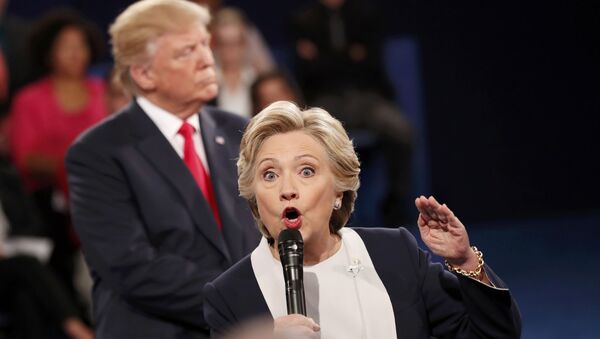Since Democratic presidential candidate Hillary Clinton lost to President Donald Trump, Democrats have grasped for answers to their stunning defeat. Excuses have included third-party candidates Jill Stein and Gary Johnson swiping away at Clinton’s vote tallies, FBI Director James Comey’s comments about a potential link between Clinton’s email servers and illicit-sexting aficionado Anthony Weiner, and perhaps most notably, allegations of ‘Russian hacking’ of the US election.
The FBI was rebuked by the Democratic National Committee (DNC) when the agency requested access to DNC servers, despite the FBI’s repeated attempts to stress the importance of receiving direct access to DNC servers and data, Sputnik reported in January.
Democrats attempts to worsen Moscow-Washington relations have not gone unnoticed by party veterans. In his final days as the number one Democrat in the Senate, former Minority Leader Harry Reid, of Nevada, stated in a candid interview, “one of the failures of the Democratic Party has been the Democratic National Committee.” The DNC, Reid remarked, “has been worthless.”
The Senate Intelligence Committee’s ongoing investigation into links between the Kremlin and Trump’s campaign has produced “tangible frustration” among committee members, according to BuzzFeed. Particularly, an official close to the committee told BuzzFeed that media attention surrounding ties between Trump and Russia has produced “wildly inflated” expectations that committee findings may not be able to satisfy.
The worries over a potential scandal-in-the-making prompted another official to exclaim, “I don’t think the conclusions are going to meet people’s expectations.”
A third unidentified source disagreed, arguing that there is “room to find something significant.” But evidence is lacking, and a slew of former US intelligence operatives have been skeptical that evidence linking Trump with suspicious Russian actors exists. Previous intelligence assessments have provided “unsubstantiated” judgements to refute a Russian link, according to more than 20 intelligence, military and diplomatic veterans.
Bill Binney, a longtime NSA veteran, said that, as technical director at the NSA, he designed data collection systems that could pin down, for example, electronic information transfers between Russia and WikiLeaks. Binney, along with over 20 colleagues, “strongly” suggested that the Obama administration provide more than just circumstantial evidence to warrant their claims, if it exists.
BuzzFeed finally admits that, since North Carolina Republican Senator Richard Burr announced a formal investigation into relations between the Kremlin and Trump, "the investigation has become the catch-all” for political fodder. The “investigation,” which should strictly follow the evidence, has become a scenario in which the committee feels it must find a “silver bullet” tying Trump to Moscow, a bullet Senate aides observe may not exist.



